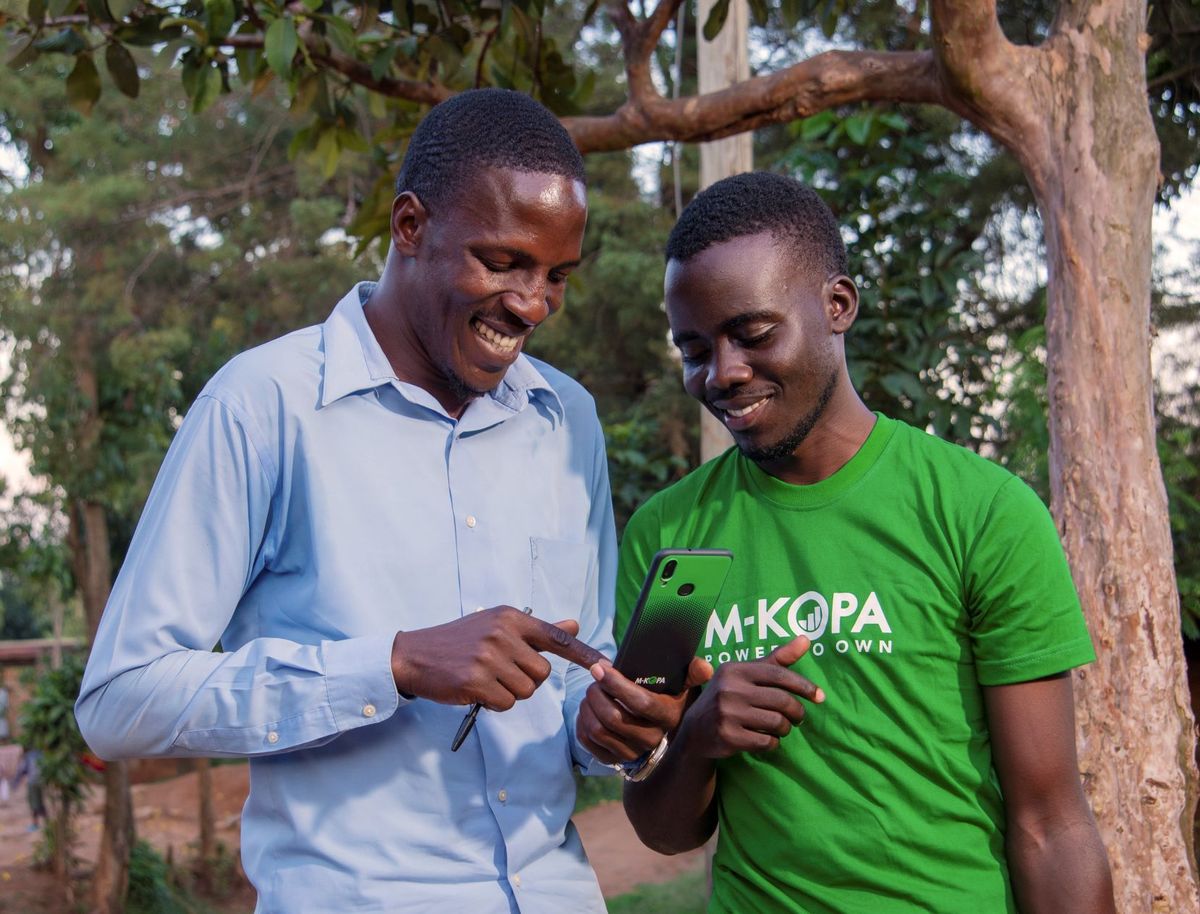M-KOPA raises $75m Growth Equity to penetrate new markets
The fintech platform is positioned for further growth as it hits two million customer milestone

M-KOPA, the fintech platform that provides connected financing and digital financial services to underbanked consumers across four markets in Africa, today announced its $75M Growth Equity round.
The rate of banked Africans remains one of the lowest anywhere in the world. World Bank reported in 2019 that 85% of Africans live on less than $5.50 per day, as a result, people cannot afford major purchases outright without credit.
In addition to the limited access to credit across the continent, the majority of consumers are underbanked, offline and hard-to-reach. However, with Africa’s fast-growing young population, high smartphone penetration rate and the use of technology, things are beginning to look brighter. M-KOPA is one of the fintech startups digitising access to basic needs.
M-KOPA, a Kenyan asset financing platform is helping underbanked customers in Africa to easily access essential products such as solar lighting, televisions, fridges, smartphones & financial services without collateral or guarantor.
By combining the power of digital micropayments with the Internet-of-Things [IoT] technology to make financing more accessible, customers can build their assets as well as build their credit histories over time through a flexible payment model.
M-KOPA, which means “borrow” in Swahili was launched in 2011 as an energy provider for low income and rural customers who lack electricity in Kenya, Tanzania and Uganda.
The startup which uses the pay-as-you-go financing model later expanded to other needs such as smartphones, televisions, refrigerators, solar lighting and digital financial services (cash loans and health insurance).
M-KOPA’s offering costs an average monthly interest rate of 3.1%, lower than the typical interest rates offered by alternative sources of credit. Through this, M-KOPA is powering financial and digital inclusion by making micropayments accessible and leveraging data to unlock credit solutions.
To date, M-KOPA has unlocked over $600 million in financing and enabled 2 million customers to access its diverse set of products. The startup recorded nearly 2.5X growth of new customers in 2021 and is projected to reach 3 million customers by the end of 2022.
Initially, the startup was heavily focused on East Africa, but it is currently operational in Kenya, Uganda, Nigeria and Ghana. Users in Kenya and Uganda can access the full service of M-KOPA but users in the other two markets can only access smartphone financing.
To execute its growth plans, M-KOPA intends to use this fundraise to launch in one new market this year and in 2023. The round which was led by Generation Investment Management and Broadscale Group, included new investors like LocalGlobe's Latitude Fund and HEPCO Capital Management.
M-KOPA’s existing investors, CDC Group and LGT Lightrock also participated in the round. The capital injection brings M-KOPA’s total equity funding to $190M. Today’s news coincides with the announcement that M-KOPA providing financing to two million customers.
With the funding, M-KOPA plans to expand into additional countries, adding to its hubs in Kenya, Uganda, Nigeria and recently launched Ghana, to further scale its footprint across the continent.
The company will keep expanding its flexible daily and weekly payments model to go beyond asset financing, by scaling its financial services products such as health insurance, cash loans and BNPL merchant partnerships that have proven to be popular with customers.
Speaking on the round, Jesse Moore, M-KOPA CEO and Co-founder said, “We’re thrilled to partner with leading global investors with deep experience supporting growth-stage companies as we expand our platform to serve more of our customers’ needs.
Our innovative model means we have enabled financial empowerment for over two million people already through micro-payments, but there are still millions of people across the continent that are stuck with limited economic options.
With this funding, he added, we will expand to more markets across Africa and scale to over 10 million customers in the next few years.”
“M-KOPA’s unique technology-enabled approach to providing essential consumer goods and financial services is an inspiring engine of empowerment perfectly aligned with our mission of Disruption for Good,” said Broadscale’s Managing Partner, Andrew Shapiro.
“The company’s rapid customer growth demonstrates the massive unmet demand in this sector, and we look forward to working with M-KOPA as they continue to scale their reach and impact across Africa”
“We believe M-KOPA is a critical part of the push to accelerate access to digital and financial tools that will empower millions of people across Africa whilst increasing access to clean energy, clean mobility and connectivity. We were early supporters of M-KOPA and continue to be impressed by the continued innovation of its product offerings and ability to accelerate at a significant scale. We are pleased to continue supporting M-KOPA as it scales further”, said Dave Easton, Partner in Generation Investment Management’s Growth Equity team.
Mayur Patel, M-KOPA’s Chief Commercial Officer, added, “By leveraging our unique data and market knowledge in serving customers over the last decade at M-KOPA, we’ve seen extraordinary growth across our markets in East Africa and our recently launched operations in Nigeria and Ghana. There is a massive opportunity in front of us to make everyday essentials more accessible by better matching fractional payment terms with customers’ daily or weekly earning and spending cycles.”
As a result of its rapid scaling, M-KOPA has created over 500 new full-time jobs across Africa since 2019 and is currently recruiting for commercial operations & engineering roles globally as part of its expansion plan.
The company was recently recognised as one of Fortune Magazine’s Impact 20, which highlights the top 20 global venture and private-equity backed companies tackling key social and environmental issues as part of their business model.






